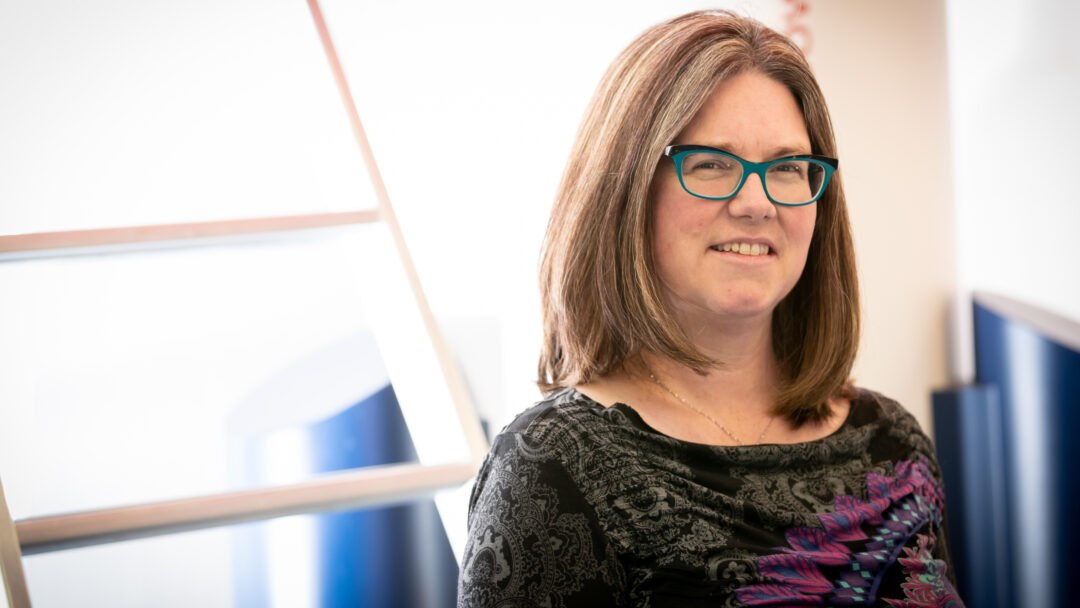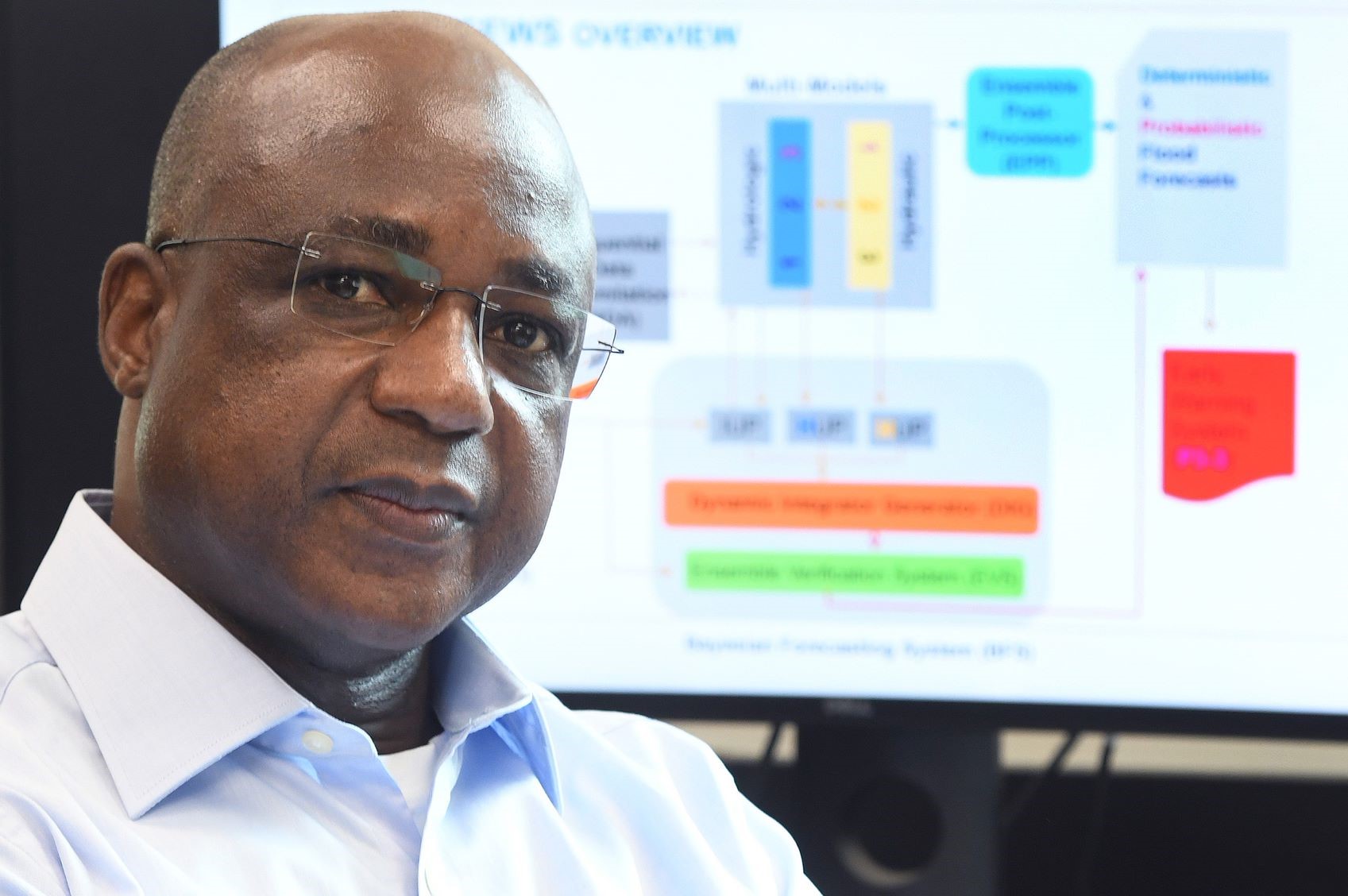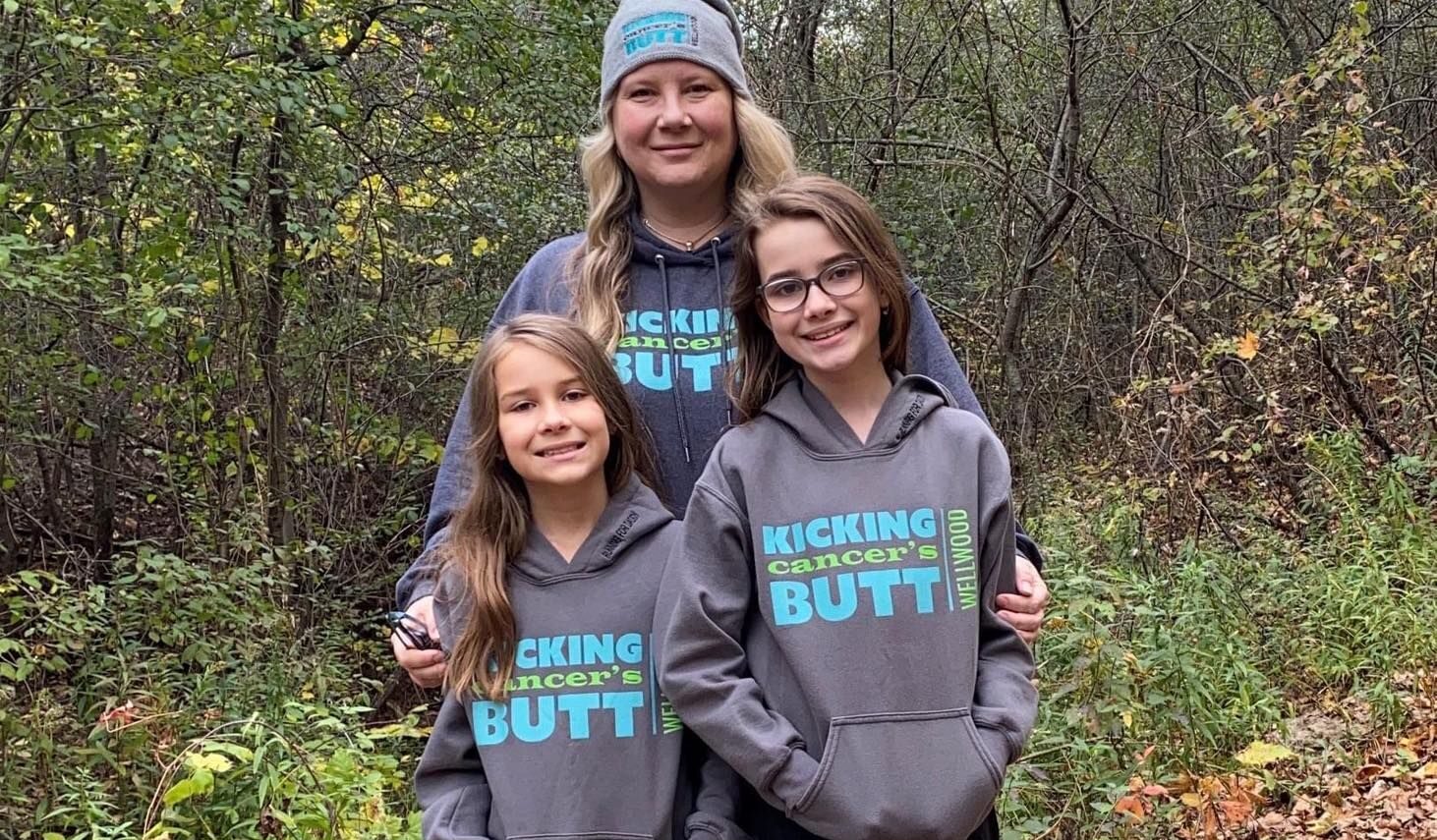Industry partnerships power research in Energy Storage Lab

Gillian Goward already knew in 1995 what Goldman Sachs announced earlier this year – the future of four wheels is electric.
Gillian, a McMaster alumnae who was studying chemistry as a grad student at the University of Waterloo, believed the move from fuel-intensive to metals-intensive cars was inevitable.
“It seemed obvious even back then that electric vehicles are the better way to go.”
To help usher in that future, Gillian’s dedicated her career to electric vehicle research. She leads the Magnetic Resonance & Materials for Energy Storage Lab at McMaster, with the mission of helping the planet one battery at a time.
Gillian and her team of postdocs, graduate and undergraduate students combine spectroscopic and electrochemical methods to understand the microscopic details that lead to the production of better battery and fuel cell technologies that power electric vehicles.
From day one, Gillian’s enlisted the help of industry partners – from international corporations with global research and development centres to medium and smaller sized companies and start-ups. Her roster of partners has included General Motors and Ballard Power Systems, GBatteries, Salient Energy, Li-Cycle and other research groups at McMaster. Together, they’ve worked on fuel cells, lithium ion and zinc ion batteries along with battery recycling plus other emerging technologies in the field of sustainable chemistry.
There was a time when industry collaborations could’ve been a career-limiting move. Faculty risked being called out by colleagues for not leading their own research, for being at the beck and call of industry partners and sacrificing their independence as academics.
Gillian, who’s Associate Dean of Research & External Relations in the Faculty of Science, says that’s never been her experience. “Industry partners aren’t telling my research group what to do – they’re looking to us to provide unique data and insights that they don’t ahve access to in-house.” Industry funding underwrites the exploratory research that drives discoveries in Gillian’s lab.
General Motors was her first partner and remains a close collaborator to this day. Gillian was an NSERC postdoctoral fellow at the Max Plank Institute for Polymer Research in Germany when her supervisor introduced her to scientists at Opel. The German automobile manufacturer had been owned by General Motors since 1929. Gillian reached out to scientists at GM’s Rochester operations after joining McMaster in 2002 as an assistant professor in the Department of Chemistry & Chemical Biology.
Gillian’s never given serious thought to spinning her research into a start-up – science and not investor relations is her strength and passion. “I respect colleagues who build businesses but that’s not for me.”
Starting and sustaining industry partnerships takes as much time and effort as launching a company, says Gillian. “One’s no easier than the other – it’s just a different path to the same goal of building a brighter world.”
When done right, industry partnerships benefit everyone involved, says Gillian.
For industry partners, there’s access to expertise, technology and data that’s not available in-house. And few research groups are doing the kind of work that’s happening in Gillian’s lab. Gillian also makes a point of including scientists from industry partners on research papers – it’s recognition that can help them secure more funding and resources for continuing research and expanded university collaborations.
For researchers, industry money is targeted to specific research goals but can also be leveraged to help attract additional government funding. Alliance grants from the Natural Sciences and Engineering Research Council of Canada (NSERC) encourage university researchers to collaborate with partners from the private, public and not-for-profit sectors.
“A strong industry-academia partnership is a stamp of approval,” says Gillian. “It shows NSERC that your proposed research project involves a company that shares your commitment to generating new knowledge and making an impact.”
And for the students in Gillian’s lab – there are currently two postdocs, two PhD students, three masters students and two undergrads –collaborations lead to mentorship, co-op and internship opportunities plus industry experience that stands out on CVs.
Gillian’s also learned a key lesson after working with industry partners for more than 20 years. “The science happening in our labs today won’t change the world tomorrow.” Government policies, regulations and societal expectations constantly shift on industry partners – sometimes slowly and sometimes suddenly without much advance notice. Patience and responsiveness are virtues for researchers.
“The future’s still coming – it just takes longer to get here than you initially thought. And you need to be ready when it arrives.”
Faculty, Partnerships, Research excellenceRelated News
News Listing

Research group receives federal climate change funding to help plan and design more resilient electricity systems
Faculty, Research excellence
January 28, 2025

Faculty of Science launches five research-focused credit courses for first and second-year students
Research excellence, Student experience, Students
January 23, 2025

